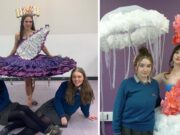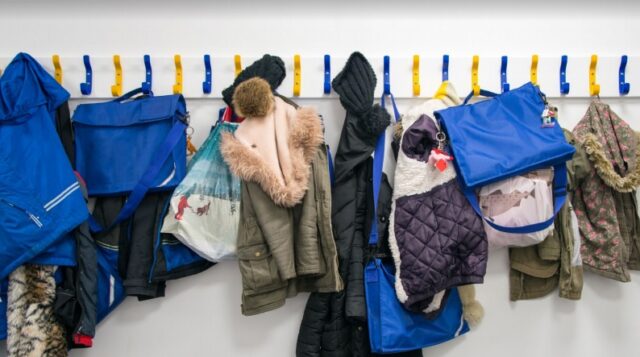There are people living in Laois from over 90 different countries, speaking 50 different languages and practising 22 different religions.
Over 10,000 people in Laois speak a language other than English on a daily basis in their homes.
It’s that level of diversity that led to the Laois Education Centre developing a ‘Community of Belonging’ project, one that will see best practice in intercultural education, promotion of the “rich linguistic repertoire of Portlaoise and its environs and engagement with schools across the educational sector.
The Laois Education Centre serves the education communities of Laois, Offaly and North Tipperary providing the required professional development courses and support to meet its educational need.
However, a conversation between Catherine Doolan, its director, and Liam O’Neill, its vice chairman also led to them discussing the “wider remit of the centre in the broader education community”.
“What became apparent to us very quickly was that the demographics of Laois have changed hugely over the last number of years,” said Catherine Doolan in a video launching their project which has been supported by the Teaching Council of Ireland.
The project was officially launched by Rotimi Adebari, the Nigerian-born man who was an elected member of Laois County Council and a former Mayor of Portlaoise, the first African person to hold such an office in Ireland.
The project is using the BEACONS model – Bringing Education Alive for our Communities on a National Scale – that has been employed in a handful of other communities around the country,
“Laois has become a very multicultural community. We discovered that over 90 different countries are now represented in Laois,” added Catherine.
“22 different religions are practised and over 50 languages spoken. In reality this means that more than 10,000 people in Laois speak a language other than English on a daily basis in their homes.
“We wondered what the effect of this was on the school communities we serve. We look on this as a gift, a huge gift of diversity to the county of Laois. It provides huge opportunities for school communities going forward.”
“We felt it was time to open up a conversation with our school communities around this and listen honestly to what they had to say.”
They duly invited students, teachers and parents to engage, with Tomás Ó Ruairc, Director of the Teaching Council, saying there was “a particular spark and enthusiasm” and “an eagerness to reach out and include the full diversity of the school community around them in Portlaoise”.
“We have been given a gift of diversity that we could never have imagined in our wildest dreams,” said Liam O’Neill in his address.
“We are excited by the possibilities that this provides. We are, also acutely aware of the challenges that diversity may pose for us all in the community
“We knew that we had choices. We could sit back, continue with our professional development of teachers and watch how the community evolves or we could decide to engage with our school communities with a view to exploring openly how Laois Education Support Centre could possibly support schools in addressing Diversity and interculturalism in their own contexts.
“Our earnest hope is that Our Community of belonging will make Portlaoise a stronger and more united community.”
The aims of the project are:
- To enable positive engagement with the education community of Portlaoise, with Laois Education Support Centre fulfilling the role of a hub of learning.
- To provide a safe, respectful, multicultural space where the diversity of voices belonging to Portlaoise can be heard in the hope that all these voices will inform and challenge those involved in the education community of Portlaoise.
- To create a space where the educational potential of diversity can be unlocked.
- To promote a sense of ‘Belonging’ which ensures that linguistic and cultural
diversity is of benefit to all, with a view to establishing Portlaoise as a ‘Community of
Belonging’, promoting all voices equally. - To create opportunities to extend the relationship between education communities across sectors in relation to diversity and explore how other partners could work collaboratively to support them in the area of interculturalism.
- To enable a conduit of local influence to reach national level in policy formation, contributing to building a broader sense of ‘Belonging’ at national level.
SEE ALSO – Impressive young Laois people set to feature in brand new Podcast series






















